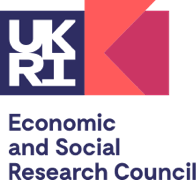During this project, the World Health organization recommended exclusive breastfeeding for children age up to six months and the continuation of breastfeeding alongside solid foods for two years. Despite this and various initiatives aimed at women from disadvantaged groups, breastfeeding rates in many developed countries remained low. In the UK, only 76 per cent of mothers breastfed initially, and more than a third of them stopped by six weeks.
This project, the most comprehensive study of its kind in the UK up to this time, examined the effects of breastfeeding not just on children, but also on mothers and employers. Funding for the project came from the Economic and Social Research Council, and CTUR worked in collaboration with a research team at the Institute of Social and Economic Research at the University of Essex.
CTUR carried out research exploring the relationship between the duration and frequency of breastfeeding and children's early development, including early literacy and numeracy skills at Key Stages 1 and 2. The project also examined whether there were links between breastfeeding and a child’s social development by examining areas like hyperactivity and peer problems. The study looked for links between breastfeeding and the health of mothers, for example in areas such as post natal depression. It also explored the impact of family-friendly working practices on breastfeeding duration and the mothers’ decisions to return to work.
Using two major data sets involving 15,000 children each, the Millennium Cohort Study (MCS) and the Avon Longitudinal Survey of Parents and Children (ALSPAC), we believe amounted to the most comprehensive collection of research ever undertaken into the effects of breastfeeding. The analysis was conducted using a range of economic and statistical techniques to disentangle the true effect of breastfeeding from other spurious associations. Publications include Iacovou and Sevilla Sanz 2010, Borra, Iacovou and Sevilla Sanz 2012, and Iacovou and Sevilla Sanz 2013.


